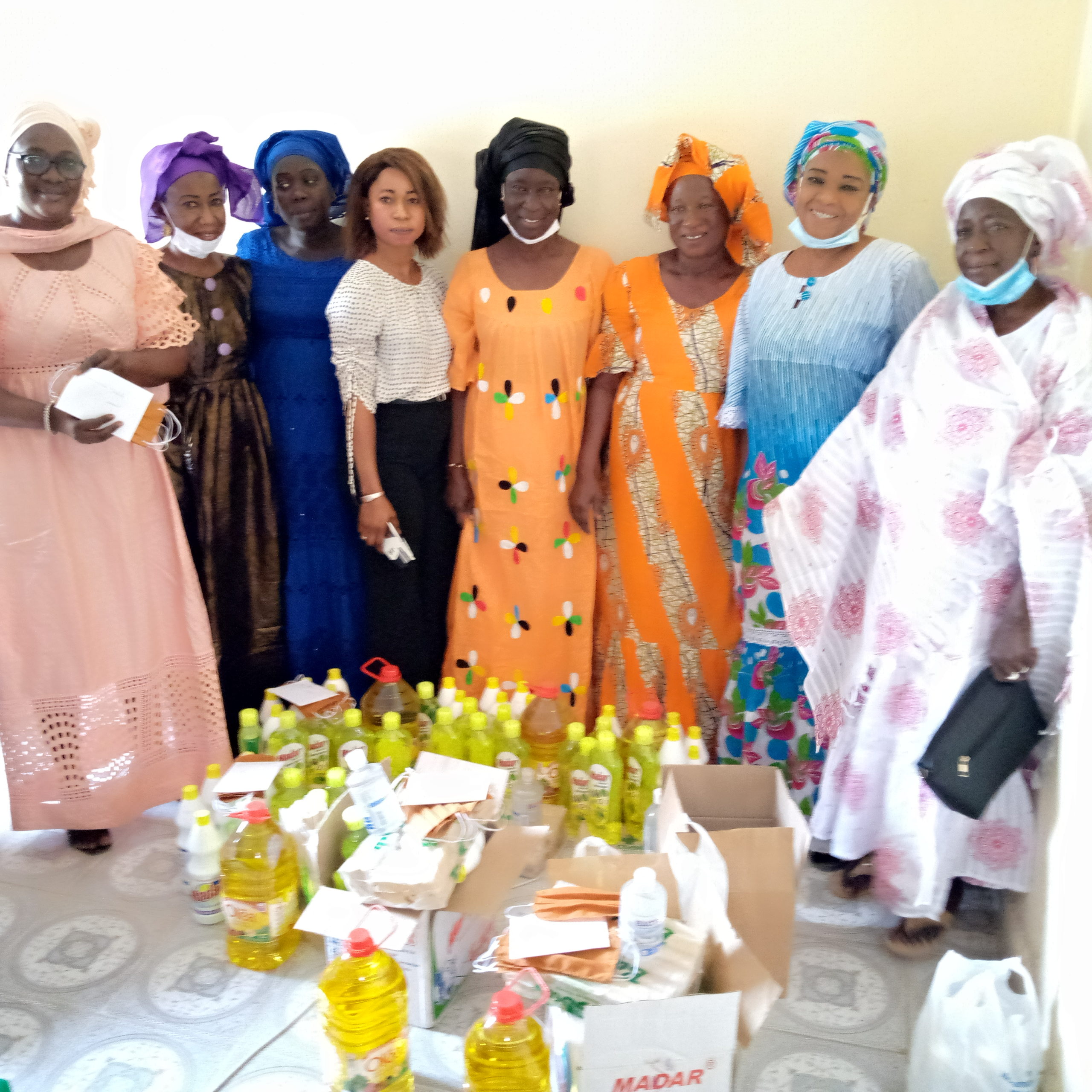The associations MJVF and MAREF responded to MODAL’s call for projects in order to finance part of the reconstruction of a school in Nemataba, in the south of Senegal. This initiative aims to improve access to education for children through the construction and equipment of the Medina Dinguiraye secondary school.
Interview with Bintou Sidibé, president of the women’s network MAREF.
The Mashaala REWBE FULADU association, whose acronym is MAREF, is an organisation that unites women who share the same ideal: the fight against poverty and the promotion of women’s rights. ‘As a women’s group, we are here to protect girls and to fight against violence against girls. In this sense, we have to promote girls’ education in schools so that they do not drop out and succeed in our localities. During the implementation of the Nemataba project, MAREF will communicate and raise awareness. The association will also ensure technical and financial monitoring. The partner organisation MJVF will steer its implementation with the support of local partners. The Mouvement de la Jeunesse Vélingaroise en France, MJVF, is a group that focuses on socio-educational development in the department. Their main areas of activity are education, vocational training, access to water and energy.
– Building schools that reassure parents
The commune of Nemataba, located in the south of Senegal, has only three secondary schools. Medina Dinguiraye is one of the only schools that do not have any permanent classrooms. Currently, the classrooms used are temporary shelters. This situation can become potentially dangerous for the children, as the school is close to a road. The school enrolment rate is falling year by year due to the poor working conditions of the children. This project aims to improve the environment for pupils and teachers. The construction work will include the installation of classrooms, latrines and various water points. The school’s lack of resources does not encourage parents to leave their children at school. For Bintou, the collaboration with a diaspora organisation like MJVF is a real privilege. “Convincing the parents to send the children to school will be easier thanks to the partnership. A well-built and well-equipped school will generate excitement among parents and students, as schoolchildren study in good conditions.”
– Encouraging Equal Opportunities at School
In the region, the illiteracy rate is close to 90% and school attendance is very low. The situation is even more dramatic for girls, as they have difficult access to education. As Bintou explains, the Dinguiraye area has a particularity. Girls start working at a very young age, because many parents cannot afford school supplies and are not able to supervise the children. Many girls drop out of school to set up informal trade. “There are girls between 8 and 15 years old who are involved in petty trade. They sell sugar, milk and products that come from Gambia. Parents push them to have interest in money, but a secure future depends on school. In rural areas, girls also drop out of school early to get married.
The development of infrastructure will promote access to the school for all young people, but especially for girls. For them, the lack of sanitary facilities is a real handicap, as they cannot attend school during their menstruation.
– Working in decent conditions
This project fits in perfectly with the Senegalese government’s “Programme for the Improvement of Quality, Equity and Transparency in Education and Training”. The programme aims to give all children access to education by adapting to their needs and providing them with adequate human and material resources. The teachers will also work in better conditions to provide quality education. In this regard, Bintou explains that the teachers are real stakeholders in the implementation of the project. “We have a management committee that will be in place so that the project does not fail. We will involve the teachers, because their working conditions are crucial if we want the provided training to be qualitative.”




